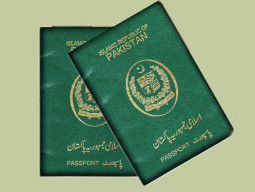
For those expecting the New Year to usher in major improvement in Islamabad-Washington ties, last week’s report in the New York Times, most likely written with the administration’s blessings, should make for sober reading. It portrays a relationship that has lost much of the ‘hype’ of the early months of the Obama administration’s interaction with the elected government, with memories of the Clinton-Qureshi ‘bonhomie’ and their claims of having established a strategic partnership, now a distant dream.
According to the paper, the administration has now reconciled itself “to salvaging a more limited counterterrorism alliance”, with the recognition that the best the US can hope for is to work for a transactional relationship with Pakistan, focused on the issue of cooperation in the war on terror, which too, will be adversely affected by continuing differences on both tactical approaches and strategic goals. While analysts on both sides knew that talk of a strategic partnership was a non-starter and merely a media exercise, both governments had chosen to ignore the inherent contradictions, in the expectation that they would be able to agree on a workable minimum agenda that would be able to bring about incremental improvements in their understanding and cooperation, enabling them to cover up their simmering differences.
However, ever since the CIA contractor, Raymond Davis, killed two Pakistanis in Lahore, the relationship has become enmeshed in accusations and recriminations. It suffered another huge set back when the US mounted a covert military operation to eliminate Osama bin Laden, an action which instead of bringing the two countries closer, added to existing doubts and misgivings. But the body blow to their bilateral ties and more particularly, to their military-to-military understanding — the historic bedrock of their cooperation — was inflicted by the aerial armed incursion on November 26, that led to the death of two dozen Pakistani soldiers. A relationship already raw and deeply bruised was wounded grievously, beyond what either government could have anticipated. And where the US failed most notably was in its inability to recognise that its actions left the military — which had always prided itself on its ‘special ties’ to the Pentagon — hurt and humiliated. Consequently, the understanding and cooperation between the GHQ and the Pentagon that had determined the pace and tempo of their bilateral ties, was left in tatters. The military was thus left with no option but to wrap around itself the mantle of patriotism, leaving the elected leadership squirming, in a desperate attempt to protect its credibility and credentials.
One consequence of this has been the government’s acquiescence to demands for not merely a review of existing agreements, but a complete reappraisal of the whole gamut of our bilateral ties to the US — something that it should have done soon after coming into power, but its priorities were different at that point in time.
Though belated, the effort to move away from Musharraf’s sell-out to the US is most commendable, except that this exercise cannot be executed in an emotionally charged atmosphere. The United States may have lost much of the lustre of yesteryears, especially after severe reversals in Iraq and Afghanistan and the accompanying economic crisis. It nevertheless, remains critical to Pakistan’s interests as well as to peace and stability in the region. The effort should, therefore, be to transform the current crisis into an opportunity to inject realism and create interlocking interests in ties with the US. Recent regional developments are likely to pose grave challenges, which call for sober reflection and restrained approaches that open up new options, not shut down existing ones. But priority has to be the domestic front, which alone can enhance credibility and effectiveness of our policies.
Published in The Express Tribune, January 5th, 2012.















COMMENTS
Comments are moderated and generally will be posted if they are on-topic and not abusive.
For more information, please see our Comments FAQ